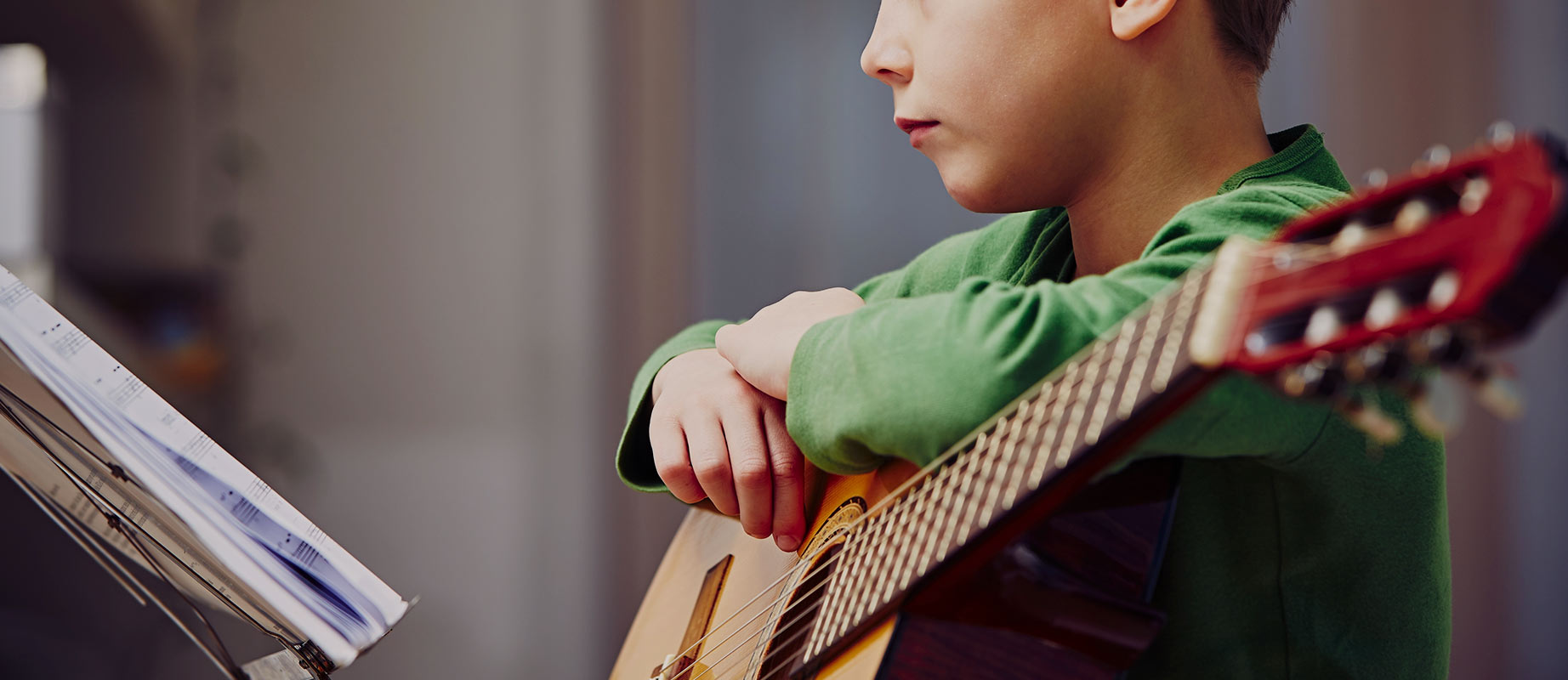
Expectations
Being Part Of A Team
Being a part of the Roseville PS Band Program means being part of a team, in which everyone is expected to work together and contribute to the success of the bands. In order for each band to function, every band member is expected to:
*Attend all rehearsals and performances;
*Come to rehearsals and performances prepared with all necessary equipment and music;
*Attend all Intensive Days and Band Camps;
*Practice at home regularly;
*Attend weekly private tutoring with a qualified musician;
*Adhere to the Code of Conduct.
Student Conduct
Band is like any other school activity, and our Band Conductors are teachers. We expect the same behaviour from students in band as they would in a classroom. It is important that all band members respect the Code of Conduct that is set by the school and which equally applies within the Band. Students are required to show respect, courtesy and consideration to the Band Conductor, Band Parents, and fellow students at all times. Students who do not adhere to these requirements may be asked to leave the rehearsal or performance. If inappropriate behaviour continues over a period of time, students’ risk being asked to leave the band program. Students will first be given warnings about inappropriate behaviour.
Students and their parents will need to read and sign a “Band Commitment Agreement” before starting in the band program.
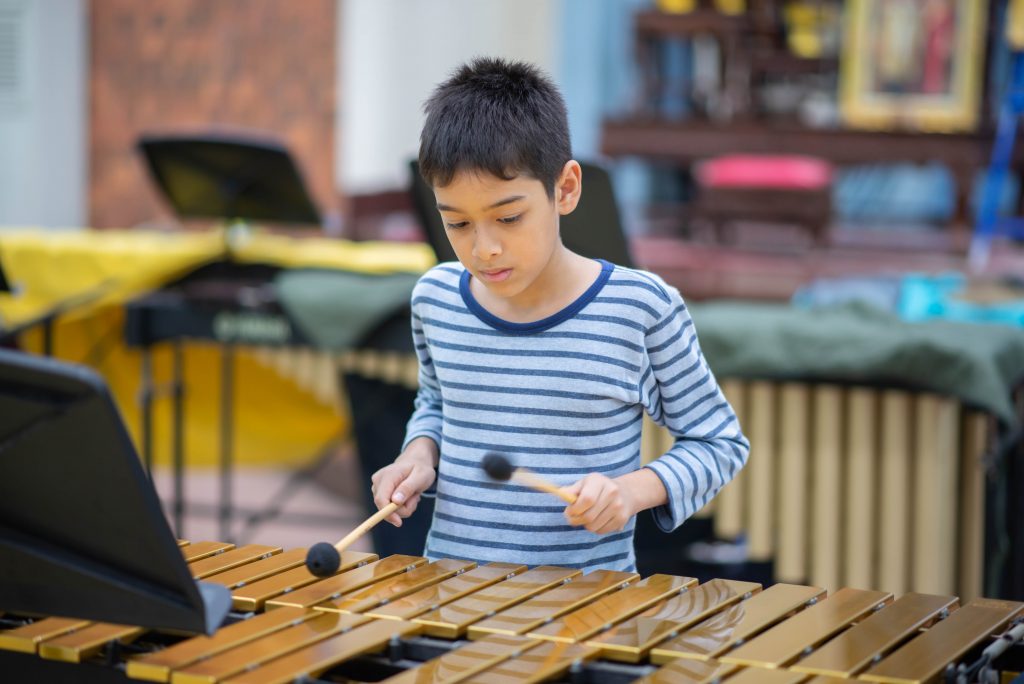
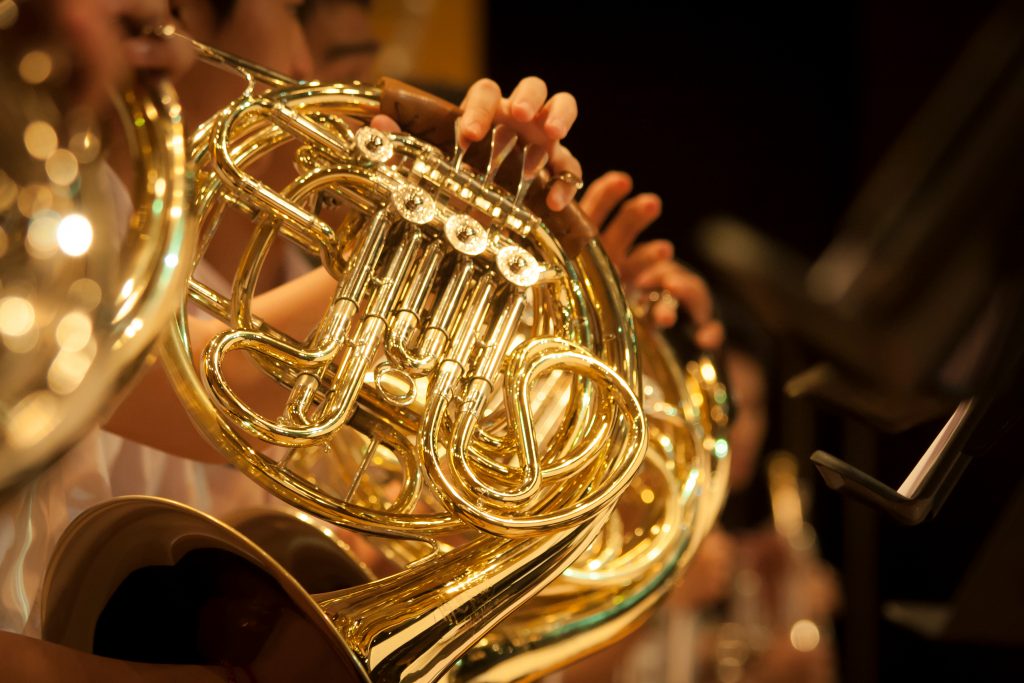
Equipment & Dress Code
Your child must have all their equipment at every rehearsal and performance:
Instrument
All Band Music
Pencil and eraser
Woodwind: spare reeds, neck strap
Brass: valve oil, spit rag
Bass Guitar: lead, tuner, strap
Percussion: are expected to own their own stick bag, which includes drum stick, hard mallets, and soft mallets.
If your child’s Practice Folder falls apart, please replace it with an identical folder. Students are provided with music stands at rehearsals, but will need their own stand for home practice, Band Intensive Days and Band Camp. Dress Code for each event varies, so you will be informed of the dress code via email for each performance and event.
Private Tutoring & Tutor List
Having a weekly private lesson for your child is a condition of being a part of the band. If your child does not have a regular weekly tutor they risk falling behind and eventually wanting to drop out of band altogether.
Engaging in an experienced tutor for your child is your responsibility. Poor teaching in the early years of learning can be hugely detrimental to your child’s development and will limit their ability to succeed on their instrument.
We will provide you with a list of tutors that work locally (RPS Tutor List). We have provided this list based on recommendations, but do not know them all personally. Beyond providing this list, the Band Program in not involved with arranging private lessons for students.
We strongly recommend you ask the tutor for a CV of prior experience and qualifications to be certain they are suitable for your child.
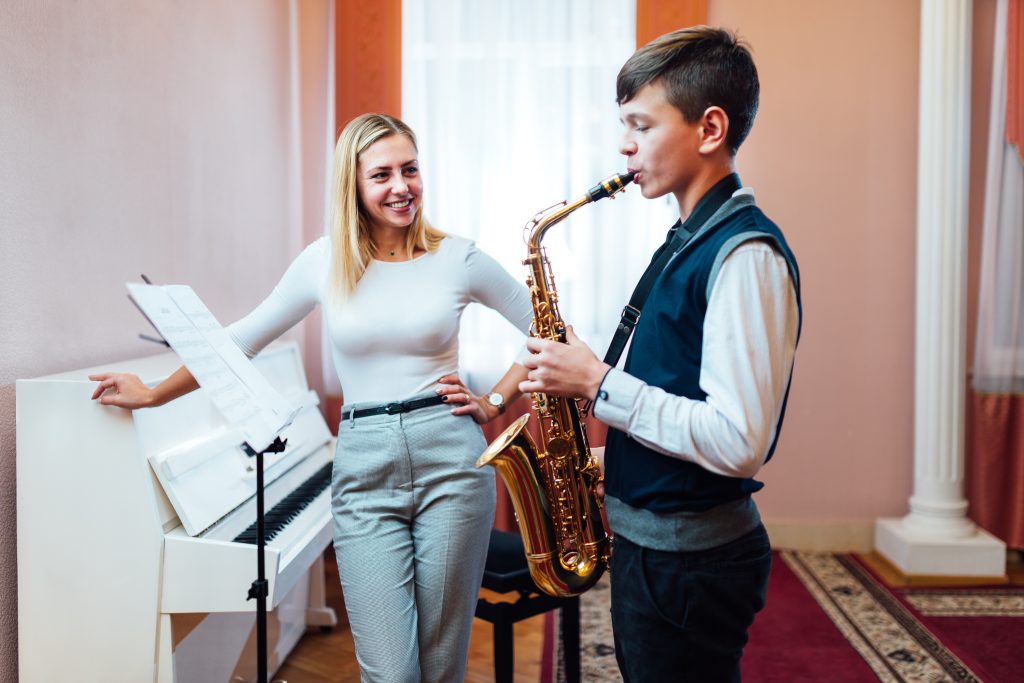
Tuition Fees – Most tutors charge around $40 per half hour lesson, but this varies from tutor to tutor depending on their qualifications and experience.
It is very important that the person engaging the tutor (i.e. the parent/carer) checks that the tutor has a valid Working With Children Check. You can check a tutors WWCC status here: https://www.kidsguardian.nsw.gov.au/child-safe-organisations/working-with-children-check

Practise, Practise, Practise
Regular practice (3-4 times a week of home practice) is vital when children are learning an instrument. If they don’t practise, they will fall behind, lose confidence, and eventually give up. Studies have shown that creating a routine of regular short bursts of practice (10 minutes a day to start) are more beneficial than irregular longer practice sessions (1 hour a week).
Try to get your child into a routine of playing their instrument at the same time every week; whether it be 10 minutes in the morning before going to school, or 10 minutes in the afternoon before dinner. Practice charts and reward systems work well for many students. You can help your child by creatine a regular practice time-slot in their schedule, and a suitable “music space” at home with an instrument stand, music stand, and a proper chair.
Most importantly, being actively invested in your child’s music and focusing on ‘progress’ over ‘perfection’ may help your child to stay motivated and engaged.
Parent Involvement
As with any volunteer run activity, parent help is vital. There are many ways to get involved – none of which require any musical experience. Your involvement is not only appreciated by the Band Committee, but also sends a message to your child that you value the time and effort they put into their music.
Rehearsals and Performances
Most rehearsals occur outside of normal school hours and are not supervised by school staff. This means that at least twoadults (in addition to the Conductor) must be present at each rehearsal to satisfy WHS (Workplace Health and Safety) and Child Protection requirements. Parents are encouraged to actively engage in the rehearsal and assist with behaviour, so the Conductor can focus on musical development.
The Band Coordinator distributes a Parent Supervision Roster for rehearsals at the start of each term. A Parent Supervision Checklist will be posted on the band room wall to assist you with what needs to be done (mostly just helping with set up, marking the roll, occasionally handing out music, and packing away). If you are unable to assist with this, please inform your Band Coordinator so that alternative arrangements can be made (such as sending a nanny or relative; or agreeing to volunteer in a different way).
At various performances and events throughout the year parents are needed to help set up/clear away/transport equipment, and supervise children in holding rooms etc.
Parents volunteering at band events and rehearsals may be required to provide the Band Committee and/or School with 100 points of ID.

Band Committee
All parents are welcome to attend Band Committee General meetings, held each term. Parents are encouraged to take on one of the many committee positions available – as the saying goes, “many hands make light work!”
Supporting Your Child
This is the most important way to be involved! Your child needs constant support and encouragement to keep them practising and to ensure they attend rehearsals and performances. Be present as much as possible and celebrate the small victories when they practise!
Tips For Parents
A great teacher once said “teaching a child music is really all about teaching the parents”. Here are some tips for the parents:
Stay Positive, Stay Engaged
Forget that saying “practice makes perfect” – replace it with “practice makes
progress”
No one sounds great when they first start learning an instrument, but they won’t get better without your help. Celebrate your child’s efforts, rather than their results. You’ll be surprised with how quickly they improve and staying positive will encourage them to keep playing.
Practise, Practise, Practise
It’s the same rule for anything you do in life – repetition is key. The easiest and most sustainable way to get your child to practise is to make it a routine. Ask your child to play you something at the same time each day – perhaps while you’re preparing dinner. If they’re watching TV, they could play a scale during the ad breaks. Even breaking it up during the day helps – it’s easier to think about playing for 10-minutes in the morning and 10-minutes at night, rather than one 20-minute chunk. Create reasons for them to play, whether it’s a family members birthday coming up or the grandparents are visiting. Instead of saying “it’s time for you to practise your trumpet” try “I’d love to hear you play a song for me on your trumpet while I do the washing”.
Quantity + Quality = Success
Practice not only needs to be regular, but it also needs to be productive. Encourage your child to be a critical thinking when they practise. Ask them questions, “how do you think you could improve on that piece?”. You don’t need to be a musician to know that what they just played definitely didn’t sound like Mary Had A Little Lamb!
Create a Creative Space
We highly recommend investing in an instrument stand. As the saying goes, “out of sight out of mind”. If you are able to create a small “music space” in your house where they have a music stand, instrument stand, and their music set up ready to go, every time they walk past they’re much more likely to pick up their instrument and play something.
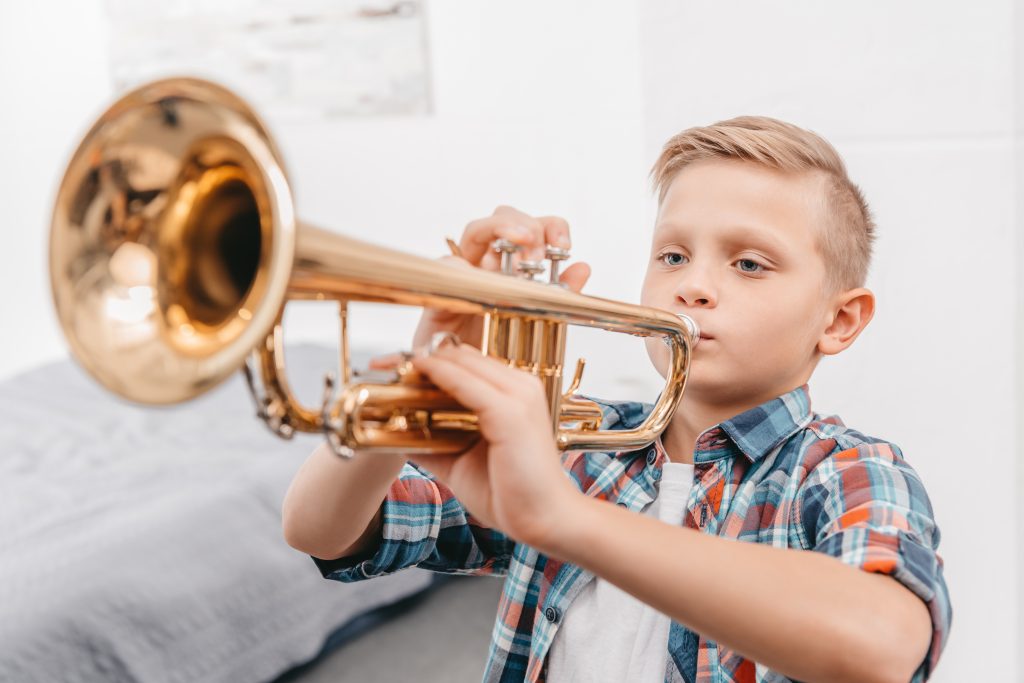
Experience & Inspire!
There is no better way to inspire your child to learn music (or any art) than to immerse them in that culture. YouTube bands, get onto Spotify, pull out the old vinyls! Take them out to shows – there’s plenty of live music out there for you and your child to experience together!

